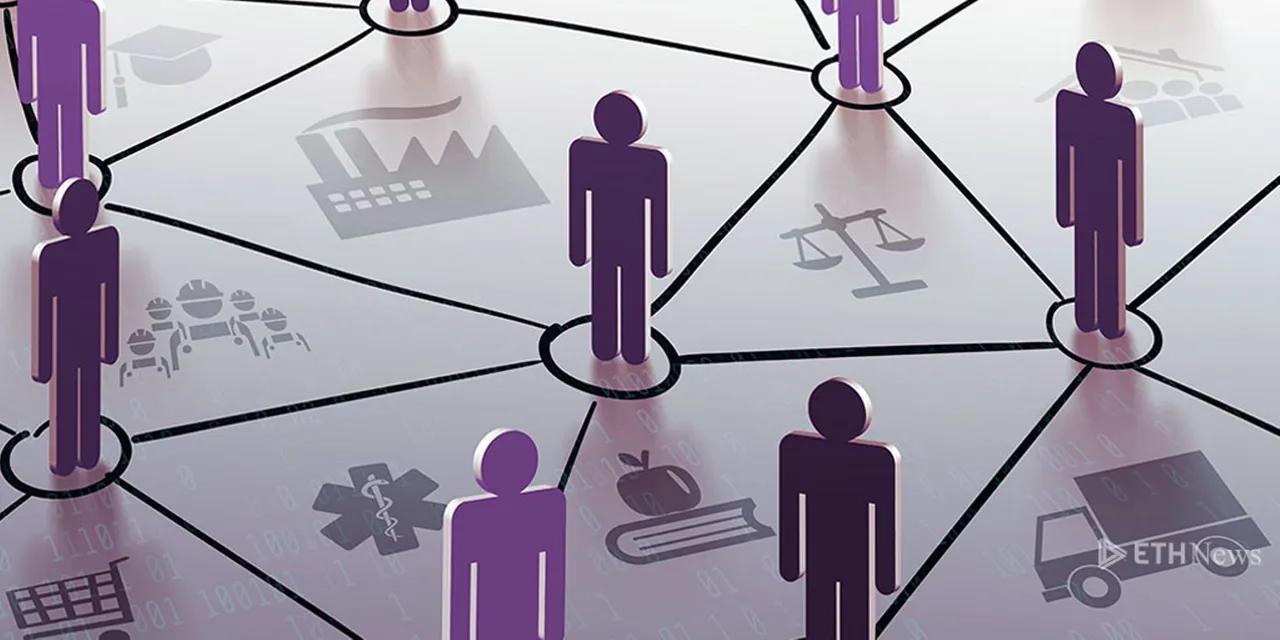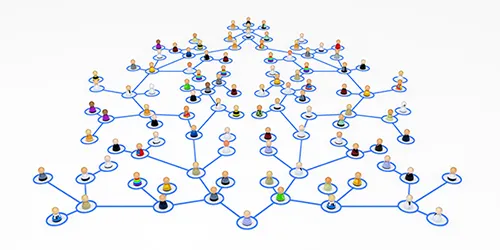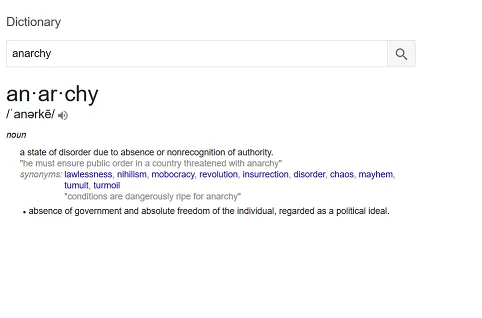
Many seem to think institutions like banks, governments, and Fortune 1000 corporations have a chance at fending off blockchain. In fact, some feel that these institutions will not only fend the threat off but continue to dominate.
I am here to tell you this is not going to happen.
The reason for my emphatic view is because I have enough understanding of technology to realize that centralized cannot fend of decentralized when the later is adopted by more than just a handful of users. Couple that with the fact that decentralized now has funding, something it did not have before, and you can see how it is going to obliterate whatever gets in its path.
Another aspect to this is that centralized entities are slow. They do not change very quickly. Their time frame is usually 5 years. Can you imagine the blockchain world in 5 years time?
Traditional companies have a hierarchy and systems in place that maintain control within the organization. It is literally a top down approach. This culture permeates into how those individuals at the top view the world. This is often a fatal flaw when dealing with disruptive technologies.
Right now, blockchain is a major threat to the banking system. Leaving aside the fact they claim to embrace blockchain (they embrace what they can control which really is a database or ledger), it is a technology that is going to radically alter the financial world. Do you think they see it as a threat?
Overall, I do not believe they do. We all know they are upset they cannot control it yet their cannot believe that a radical change in the banking model would come from anywhere other than the banking sector. Again, it is that top down, "it all comes from us" mindset. This is the culture they are ingrained in and it is difficult to "think outside the box". The people running these companies have been in this arena for decades.
The concept that disruptive, revolutionary ideas are coming at them from the outside is beyond their comprehension. There were times in the past where a threat was recognized...and it was dealt with. Commonly, pulling out the checkbook is the answer. In this situation, that will not work.

Decentralization is so powerful because it is so agile. People from all over the world can put forth their ideas in an experimental fashion. If the application is feasible and readily accepted by the community, it is a winner. There are no meetings to hold, no supervisors to sign off on it, nor anyone to approve funding. Changing direction can happen in an instant. In fact, with enough people, all directions are tried before everyone starts to follow a similar path of known successes.
The fact that we are dealing with open source is another variable that makes the traditional sitting ducks. They like to have closed systems where their secrets are maintained. This is another thing which slows progress down. There are no levels of clearance required by people working on the blockchain. Any of the code is open for all to see. I doubt too many people have access to the trading algorithms at Goldman Sachs. That level of clearance is only reserved for a few. Hence, how much radical improvement are they going to experience in a short period of time?
@ned's goal is to have 100K entrepreneurs on the Hive blockchain within 5 years. To show you how much of an impact that can make, Google and Facebook employed around 97,000 COMBINED at the end of 2017.
Not only will there be more people than these two entities, those 100K people are creating whatever they desire without restriction. The only approval process to go through is when the application is on the blockchain and if people use it or not. Before that, the creation of the application is without limitation.
It is akin to a bunch of jet skis and an oil tanker. Anyone with an ounce of sense will not go head on with the oil tanker. That person would be flattened like a bug. However, when you have hundreds of thousands of jet skis maneuvering around, the oil tanker has some problems. The jet skis can turn on a dime while it takes miles just for the oil tanker to stop, let alone turn.
The banks, telecos, insurance companies, and other giants are oil tankers. They have the size and might. Because of this, they can bully, pay off, or buy out a lot of what threatens them. This is how business always was done.
This time is different for one reason. Guerrilla tactics are in play. These institutions have no idea, if they are even aware, of where the threat is coming from. With decentralization, the next game changer could be in the process of development in some small nation by someone with a tablet and an Internet connection. It is very difficult for something so big to swat what it cannot see.
Many people feel decentralization will lead to anarchy and, hence, fear it. Of course it leads to anarchy, that is the guaranteed result. However, what is there to fear?

Many people fear because they believe the first definition will result. "A state of disorder" is commonly feared. Yet, as we know, much of life involves disorder. In fact, order tends to create a great deal of chaos too. When things invariably stray, order is instantly replaced with disorder since people do not expect it.
I prefer the second definition anyway.
"Absence of the government and freedom of the individual."
This is what decentralization gives to people. It is also what makes centralized entities powerless against. When a group of people are free to create and develop what they want while having a forum to test out those ideas upon, that is where exponential growth takes place.
Centralized entities believe in pushing out the disruptive ideas. Decentralization promotes the exact opposite.
The ones who fail to see this are those who are so ingrained in the system of centralization that they have a blind spot.
And these people are sitting at the top of some of the most powerful institutions in the world.
In you found this article informative, please give it an upvote and rehive.
Pictures by Google Images